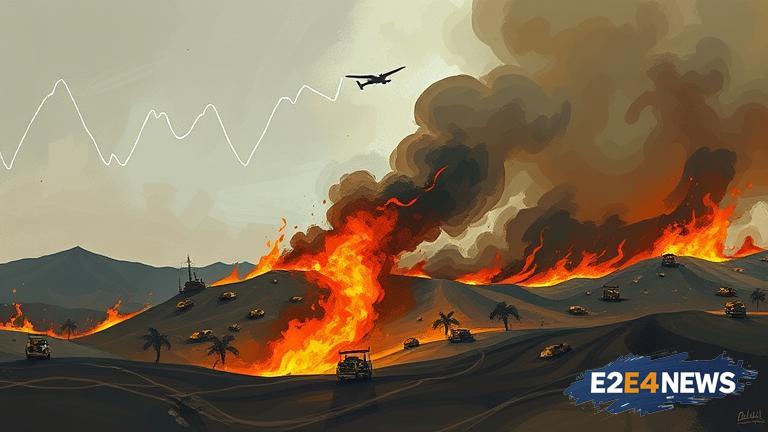The recent outbreak of fires in Cyprus has sparked a wave of controversy and criticism, with many questioning the leadership and preparedness of the authorities in charge. The fires, which broke out in early August, have caused widespread damage and destruction, leaving many to wonder why more was not done to prevent and contain them. As the investigation into the causes of the fires continues, attention has turned to the role of the government and emergency services in responding to the crisis. Many are asking why the person in charge was not present when the fires broke out, and why more was not done to coordinate the response efforts. The lack of effective leadership and communication has been cited as a major factor in the failure to contain the fires, with many criticizing the government for its slow response. The opposition has been quick to capitalize on the issue, calling for the resignation of the minister responsible for emergency services. The government has defended its response, citing the challenging weather conditions and the difficulty of accessing the affected areas. However, many are not convinced, and the issue is likely to continue to dominate the headlines in the coming days. The fires have also raised questions about the preparedness of the emergency services, with many calling for increased funding and resources to be allocated to the sector. The use of social media has also been criticized, with many accusing the government of using it to spread misinformation and downplay the severity of the situation. As the people of Cyprus begin to rebuild and recover from the devastating effects of the fires, many are demanding answers and action from their leaders. The international community has also been watching the situation closely, with many offering support and assistance to those affected. The European Union has pledged to provide aid and assistance, and the United Nations has also offered its support. The fires have also highlighted the need for increased cooperation and coordination between countries in the region, with many calling for a more unified approach to disaster response. The economic impact of the fires is also likely to be significant, with many businesses and industries affected by the destruction. The tourism industry, which is a major contributor to the Cypriot economy, is likely to be particularly hard hit. The environmental impact of the fires is also a major concern, with many species of plants and animals affected by the destruction. The fires have also raised questions about the role of climate change in exacerbating the risk of wildfires, with many calling for increased action to be taken to reduce carbon emissions and mitigate the effects of global warming. As the investigation into the causes of the fires continues, it is clear that the issue of leadership and accountability will remain a major focus of attention. The people of Cyprus deserve answers and action from their leaders, and it is up to the government to provide them. The international community will also be watching closely, as the situation in Cyprus serves as a reminder of the importance of effective leadership and preparedness in responding to disasters. In conclusion, the recent fires in Cyprus have highlighted the need for increased leadership and accountability, as well as the importance of effective preparedness and response to disasters. The government must take responsibility for its actions and provide answers to the people, and the international community must offer its support and assistance to those affected.
